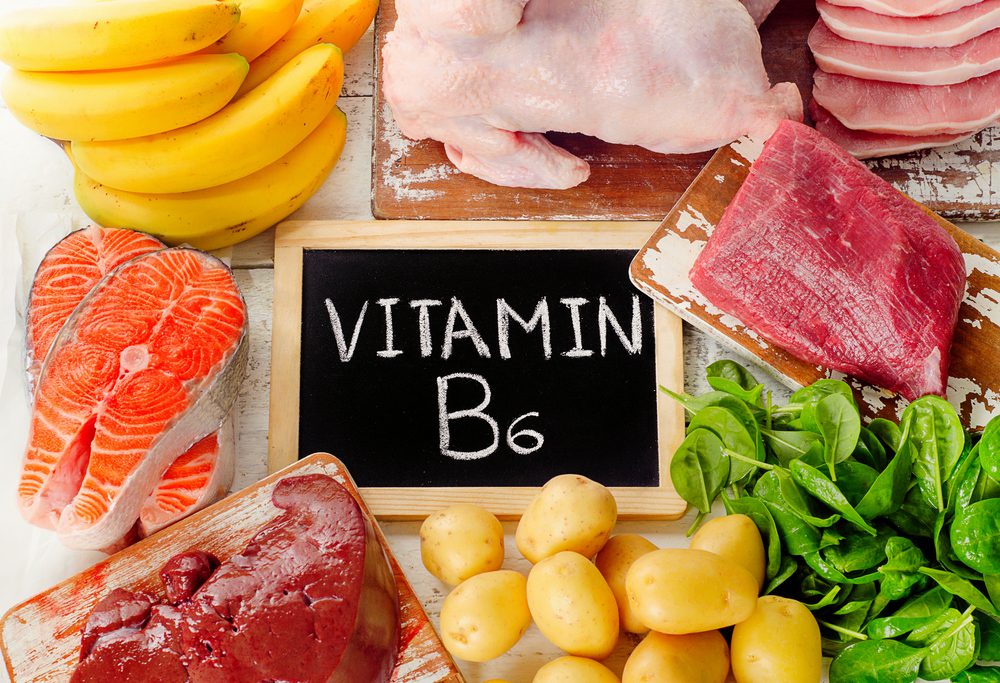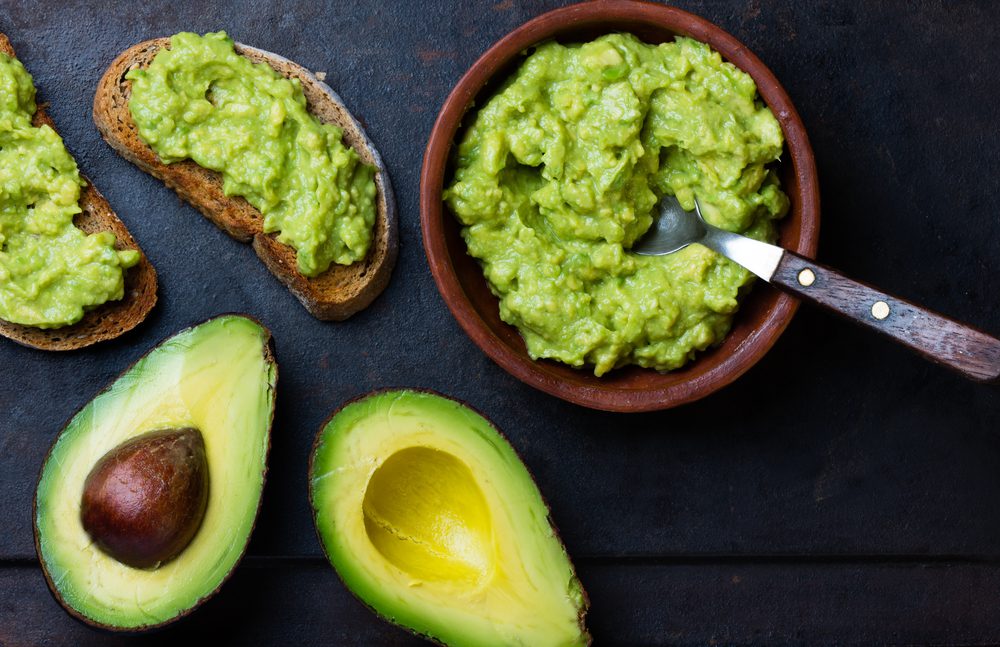Have you ever wondered if you are getting enough vitamin B6?
Vitamin B6 has innumerable benefits. Also known as pyridoxine, it’s a vitamin that your body requires for several functions. It’s important to protein, fat, and carbohydrate metabolism and creates red blood cells and neurotransmitters.
Your body can’t produce vitamin B6 on its own, so we must get it from foods or supplements. Most people get enough of this vitamin because of their diet, but specific populations may be at risk for deficiency.
Consuming the right amounts of vitamin B6 is essential for optimal health and may even prevent and treat chronic diseases.
These benefits include supporting healthier skin, detoxifying the liver, enhancing the health of blood vessels, improving cognitive function, relieving mood swings, curing anemia, and supporting eye health.
Vitamin B6 can even relieve the symptoms of rheumatoid arthritis, prevent diabetes, relieve carpal tunnel syndrome, treat pregnancy-related nausea, and treat hair loss.
Wondering how much of this Vitamin B6 you need? Well, the recommended dietary allowance is 1.3 mg. So let’s take a closer look at the benefits and exactly which foods you should be eating to ensure you get enough Vitamin B6 in your daily diet.

Rheumatoid arthritis
Vitamin B6 can help reduce symptoms of rheumatoid arthritis. The high inflammation in the body that results from rheumatoid arthritis can lead to a drop in vitamin B6 levels. But, it’s unclear if supplementing with B6 decreases inflammation in people with this condition.
A study in 36 adults with rheumatoid arthritis found that 50 mg of vitamin B6 daily corrected low blood levels but didn’t decrease the production of inflammatory molecules in the body.
On the other hand, a study of 43 adults with rheumatoid arthritis who took 5mg of folic acid alone or 100mg of vitamin B6 with 5mg of folic acid daily revealed that those who took B6 had significantly lower levels of pro-inflammatory molecules after two and a half months.
The contradictory outcomes of these studies may be due to the difference in vitamin B6 dose and the length of the survey. However, high doses of vitamin B6 supplements may provide anti-inflammatory benefits for people with rheumatoid arthritis over time.
Healthier skin
One of the most impressive benefits of vitamin B6 is that it helps maintain perfect skin. If you want to prevent premature aging, then vitamin B6 is one of the best NATURAL ways to slow down the formation of fine lines and wrinkles.
It’s also helpful in relieving many skin conditions, including dry skin, eczema, and acne. It also treats a few severe skin disorders such as melanoma and psoriasis.
Studies have even found that getting enough of this vitamin can lower your risk of developing certain types of skin cancer.
The reason is unclear, but researchers suspect that it’s because of its ability to fight inflammation that can contribute to cancer and some other chronic conditions.
Depression
Vitamin B6 has a crucial role in your mood regulation. This is somewhat because this vitamin is necessary for creating neurotransmitters that regulate emotions, including serotonin, dopamine, and gamma-aminobutyric acid.
Vitamin B6 can also decrease high blood levels of the amino acid homocysteine, linked to depression and other psychiatric issues.
Research has shown that depressive symptoms are associated with low blood levels and intake of vitamin B6, especially in older adults at high risk for B vitamin deficiency.
One study in older adults found that low blood levels of vitamin B6 doubled the likelihood of depression. But, using vitamin B6 to prevent or treat depression has not been shown to be completely effective.
A two-year controlled study in approximately 300 older men who did not have depression originally found that those taking a supplement with B6, folate, and B12 were not less likely to have depressive symptoms than the placebo group.
If you find yourself having a vitamin B6 deficiency, you can add more foods that contain this vitamin to your diet while also taking some supplements to aid in the process. If you are interested in vitamin B6 supplements, these are the ones we recommend!
Blood vessel health
Vitamin B6 regulates the levels of homocysteine in your blood. This is a type of amino acid that you acquire from eating protein from sources like meat.
Since high levels of this compound may lead to inflammation and the beginning of many heart diseases, you must add vitamin B6 to your diet to maintain good homocysteine levels.
If someone suffers from a vitamin B6 deficiency, he/she is likely to have an excess of homocysteine. This may even lead to heart attacks in some cases. It also maintains good cholesterol and blood pressure levels to prevent many types of heart disorders.
Alzheimer’s risk
Vitamin B6 may play an interesting role in improving brain function and preventing Alzheimer’s, but the research is still ongoing. This vitamin can decrease high blood levels which may increase the risk of Alzheimer’s.
One study in 156 adults with elevated blood levels and mild cognitive impairment found that taking elevated doses of B6, B12, and folate decreased the levels and decreased wasting in some areas of the brain, which are vulnerable to Alzheimer’s.
But, it’s unclear if this decrease can be associated with improvements in brain function or a slower rate of cognitive impairment.
A controlled trial in hundreds of adults with mild to moderate Alzheimer’s found that a higher dose of B6, B12, and folate decreases homocysteine blood levels but did not slow the decline in brain function compared to a placebo.
…So now that we’ve looked into some important benefits, keep reading to see which foods can help raise your Vitamin B6 levels!

Turkey
Do you want to get a lot of B6 from one source? Turkey is a perfect choice. Just one serving of turkey, that’s 2 to 3 ounces, contains nearly half of your daily requirement of Vitamin B6.
Of course, the added benefit is that you’ll be getting other nutrients at the same time as well, including zinc and selenium.
Salmon
It’s often recommended that you incorporate seafood into your diet because of its many benefits, and the amount of B6 salmon is definitely one of them.
It’s one of the best food sources of B6 you can possibly reach for. In one 3oz serving of salmon, you’ll get about 35% of your daily intake of vitamin B6. But salmon also has many other nutritional benefits, including omega-3s, protein, vitamin D, and potassium.
Potatoes
Potatoes are nutrient-dense and reasonably low-cost vegetables that can be cooked in many different ways. One cup of potatoes gives you about 25% of your Vitamin B6 daily value.
This veggie seems to have a bad reputation among a few who think they’re unhealthy, but that’s mostly untrue. Looking for some inspo on how to incorporate more potatoes into your diet?
You can make an olive oil-based potato salad with herbs, add sliced potatoes, obviously cooked, to salads, or even add them to soups.
Ground beef
If you love meat, ground beef provides protein, iron, and many other nutrients, including a good dose of Vitamin B6. In a 3oz serving of ground beef, you’ll get about .3 mg of vitamin B6, which is 18% of your daily intake.
It can be used to make meatballs, bolognese sauce, or tacos and burritos. Just be mindful of how much beef you’re eating per week. Consuming a lot of red meat isn’t great for the climate OR your health.
Chickpeas
If meat or any other animal-based food products aren’t your cup of tea, chickpeas are a great source of vitamin B6. They’re also versatile and can be used in hummus, soups, veggie bowls, and salads.
Don’t worry too much about choosing between dried or canned chickpeas. Both are great options.
But if you’re searching for something a bit more diverse, we recommend chickpea pasta. It’s a great way to reap the benefits of B6, plus it contains more protein and fiber than regular pasta.

Avocado
Avocados are another great plant-based source of Vitamin B6, containing roughly 20% of your daily value in one cup. They’re also an amazing source of healthy fat, fiber, and many other vitamins and minerals such as vitamin E, vitamin C, and potassium.
The options are endless when including some avocado in your diet. Try it in salads and grain bowls, over toast, or with eggs, or you can get creative and come up with your own ideas… Just be sure to let us know about it so that we can add it to our own recipes!
Cottage cheese
Cottage cheese is an excellent source of B6, giving you about 12% of your daily intake in one cup. It’s also an incredible source of protein for a small number of calories. Choose some cottage cheese for breakfast or a snack throughout your day.
It’s delicious with fruit or even some more savory toppings. You can apply it on some toast or even eat it with crackers. You can also blend cottage cheese into a smoothie or use it to add some creaminess to your stews and casseroles.
Carrots
We all love and consume carrots for their color and crunch, but did you know that they’re packed with nutritional benefits? These veggies are a great source of many nutrients, including vitamins A and B6.
Add them to stir-fries, roast them as a side dish, or snack on them with hummus to reap the benefits of vitamins, potassium, and fiber.
Are you getting enough Vitamin B6 in your diet? Make sure you share your thoughts with us in the comments section!
And let us know if these tips were helpful. But meanwhile, you should also check out: 8 Bizarre Side Effects of Common Foods.






One Response
Love the info you provide. We need this to take care of our health. Thank you!